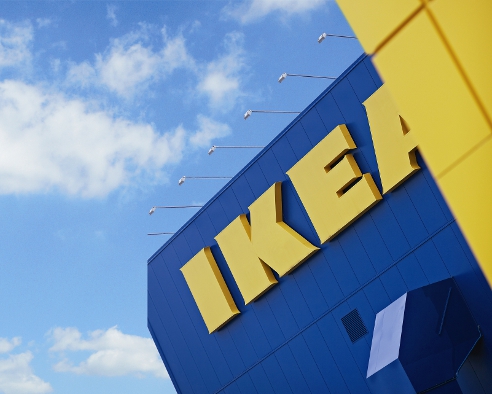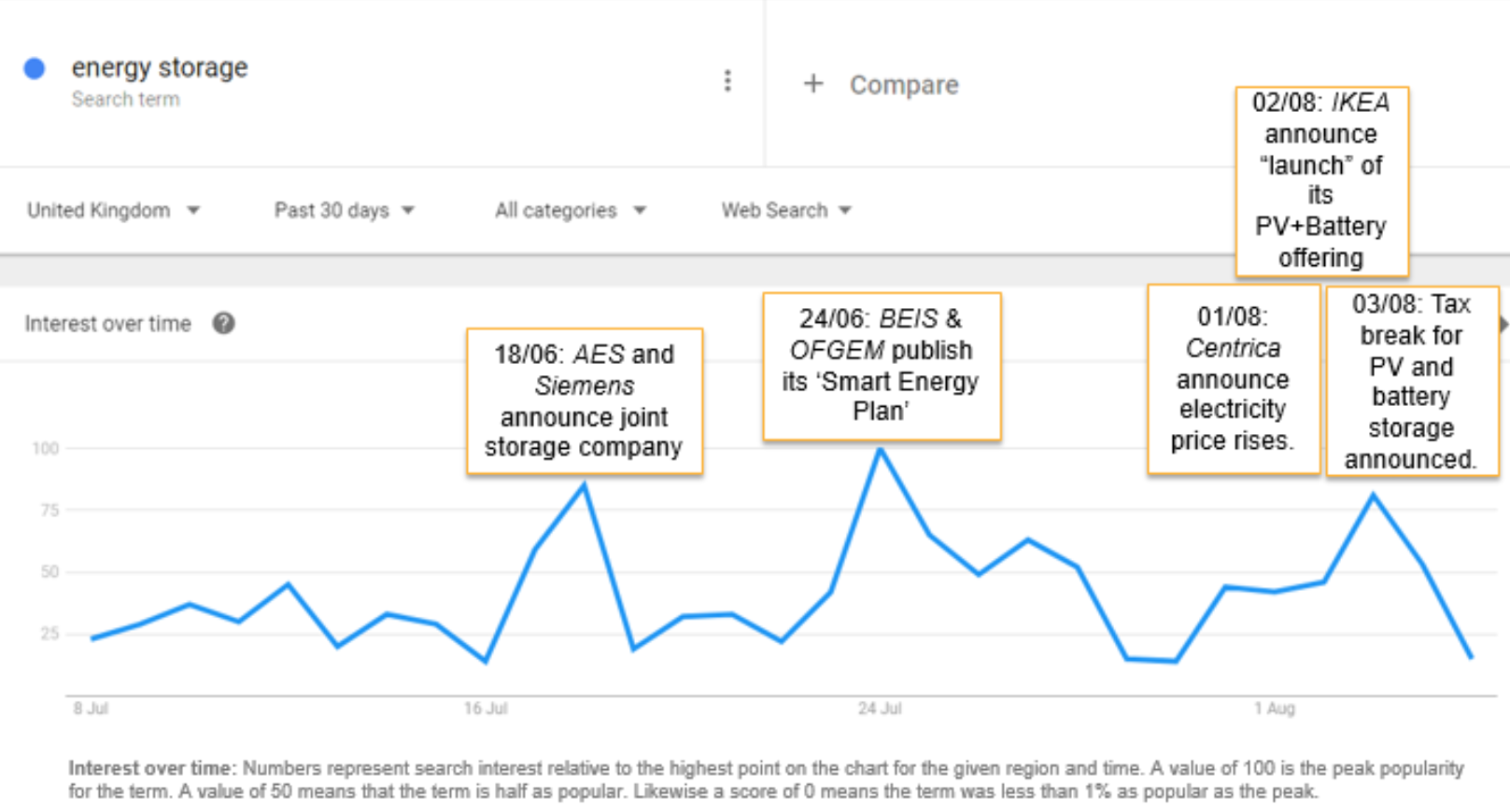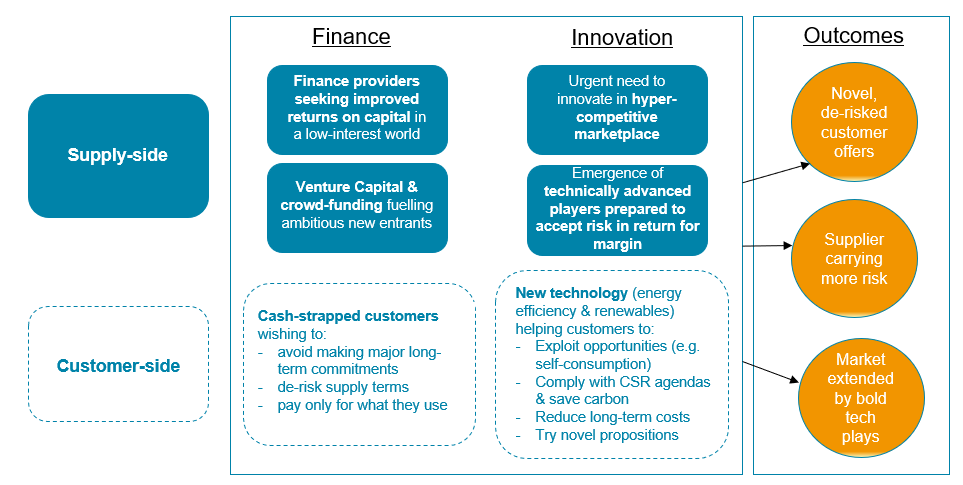
In mid-2017, IKEA announced that it would be ‘launching’ a battery storage offering to sell alongside its solar panels in the UK. The week previous to this announcement, Siemens – another household name – announced that it would be joining forces with AES to create Fluence, a company focusing on the global energy storage industry.
The press release by IKEA was viewed by many in the industry as a big deal, with many excited that such a well-known consumer brand could be ready to push storage into the UK market.
Enjoy 12 months of exclusive analysis
- Regular insight and analysis of the industry’s biggest developments
- In-depth interviews with the industry’s leading figures
- Annual digital subscription to the PV Tech Power journal
- Discounts on Solar Media’s portfolio of events, in-person and virtual
But in a world where energy storage will play an increasingly important role – in balancing renewables, reinforcing the network, and reducing energy costs – how important will ‘brand’ be?
Brand will be important for the following three reasons:
-
Confidence in the product is paramount to protect a well-known brand:
Despite the fanfare around the announcement, storage and PV wasn’t a completely new offering for IKEA. The company had been offering storage with its PV systems for some time to any customers who requested it. The company had been soft trialling the products for a while before making any big announcement. The IKEA brand has been built up over more than 70 years and companies of this size and heritage don’t risk it over what will be initially an extremely niche offering (IKEA sells one of its BILLY bookshelves every three seconds with one-tenth of furniture purchased in Britain coming from IKEA).
- Brands know the importance of timing:
Some of the more cynical among us had noted that the IKEA announcement came hot on the heels of an Centrica electricity price rise – parent company of British Gas and one the UK’s “Big 6” energy suppliers. However, July to August also saw other important stories for energy storage, including the publication of the UK Government’s Smart Energy Plan by BEIS and OFGEM, and the announcement that there would be a tax break on battery systems when supplied with solar panels. The resulting increase in attention for energy storage are demonstrated by the spikes in internet searches (see Google Trends image below), surrounding the IKEA and other announcements.
When a product is launched can heavily influence the success of the release, something that will be very obvious to a major retailer like IKEA but can be missed by smaller, more technology focussed players.
-
Brands know what makes their customers tick:
The big consumer brands understand what motivates their customers. As with the previous point, IKEA may be betting that energy prices are the key to UK customers’ wallets when it comes to investments like PV and energy storage. Indeed, a recent survey by consumer association Which? found that rising energy prices were something UK consumers thought should be a top government priority.
However, selling a battery for a home that costs the same as a Caribbean cruise, is not quite the same as selling keenly priced – albeit good quality – self-assembly furniture.
Customer motivations for energy storage products are something we’re exploring much more with the Delta-ee in-house customer panel and as part of our Energy Storage Research Service.

How will energy storage be sold in the future – and what role with ‘brand’ play?
Through our ongoing analysis of the multitude of innovative business models emerging within the energy sector – and with storage as a key enabler – we see a clear direction of travel towards ‘Energy-as-a-Service’ (EaaS) offerings.
Today, with energy purchased on a kilowatt hour basis from an energy supplier, it is merely a commodity transaction with ‘brand’ meaning virtually nothing to most people. But in the future – with the cost of distributed generation technology falling, digitalisation, and more customer centric offerings – there will be a strong move towards service based offerings where brand will hold greater sway.
Consumers who have been choosing solar PV for their home initially will also have an option to add energy storage, smart appliances, smart controls, and/or an electric vehicle. This will see an opportunity for a company to be a ‘one stop shop’ to offer all these as a service, while also helping optimise these to ensure maximum self-consumption of self-generated, zero marginal cost renewable energy. At this point, with customers no longer paying for a commodity, brand will become much more important.

Brand can be very important but it does not guarantee success
‘Brand’ can be very important in the world of energy storage because of the experience companies like IKEA have when it comes to launching new products and finding ways of creating customer value. We expect to see more companies try to harness this ‘brand power’ by partnering with more well-known names.
However, this does not guarantee success of ‘new energy’ and energy storage. A 360-degree view of the commercialisation challenges will be needed for successful storage product launches, as well as the ability for finding and appealing to the right customers through the right service offering.
One thing is clear – brand will play an increasing role in the future of energy.

